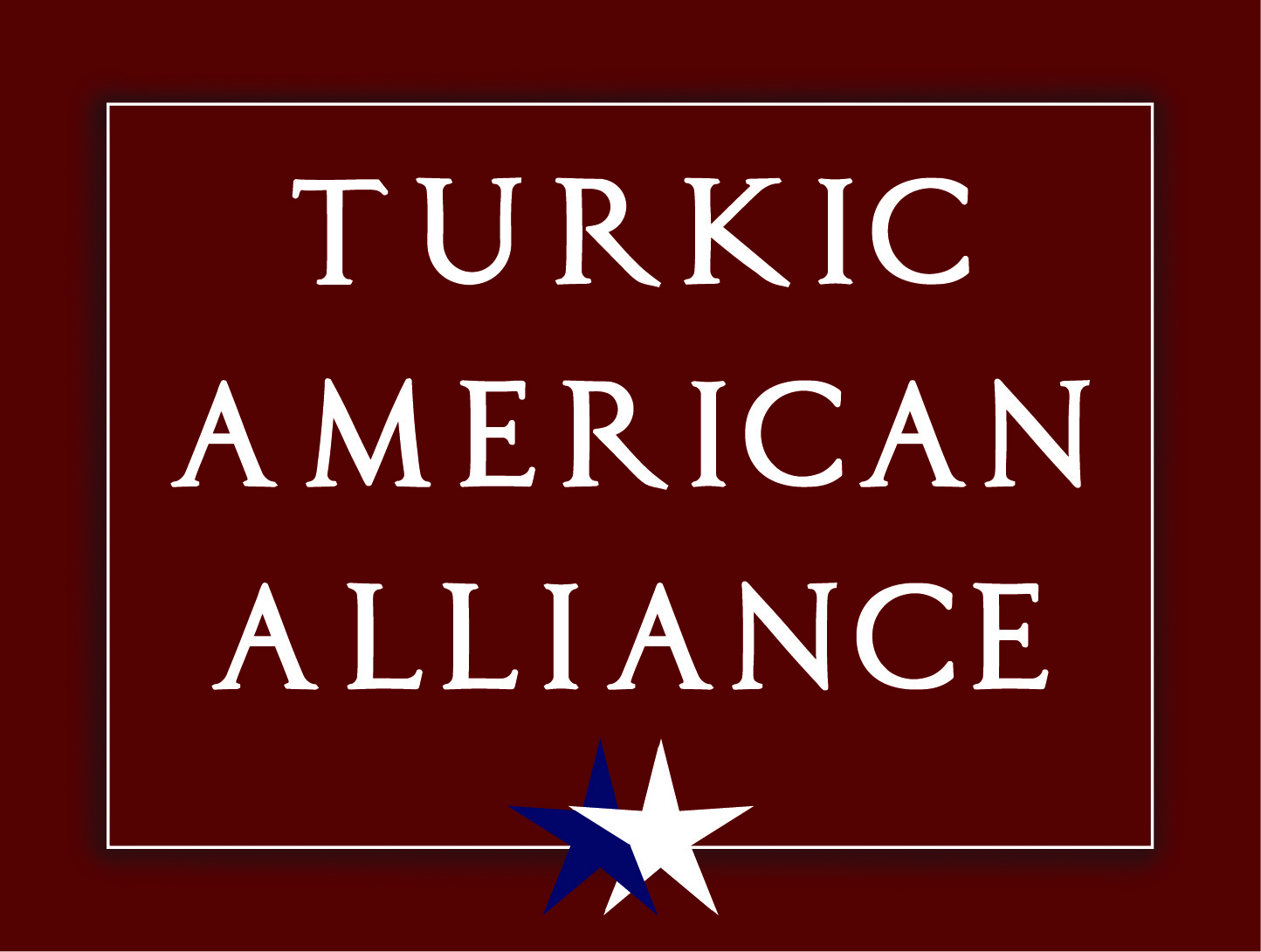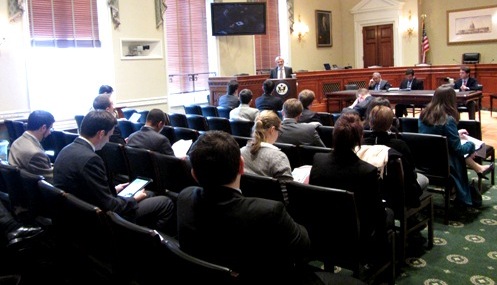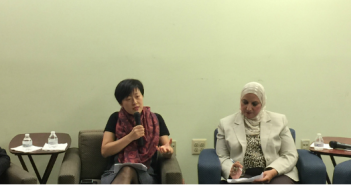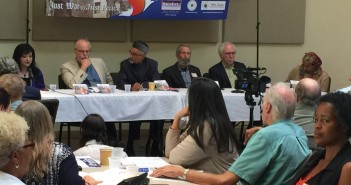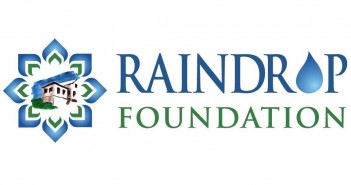As a part of Congressional Talk Series, Turkic American Alliance hosted an event called Turkish Media: Press Freedom in Turkey. The program was held at the Congress Longworth House Office Building on 14th of February. Panel featured the following prominent Turkish journalists: Salih Memecan – president of the Media Association and a cartoonist at Sabah newspaper; Ergun Babahan – columnist at Star Newspaper and Today’s Zaman Commentator at 24Tv; as well as Deniz Ergurel
– Secretary General of Media Association. Dr. Fevzi Bilgin, Director of The Rethink Institute, moderated the panel.
Mr. Memecan
Turkey is in the process of changing. Turkey has more democratized society and more democratic government than it had several years ago. Yet democratization process in Turkish media representation has been evolving slowly. For the Media Association freedom of expression is a major concern that they work for. Association provides support for young journalists by granting scholarships and trying to represent more diverse Turkish Media.
Turkey has become much more open society than it used to be a decade ago. Nowadays it is possible to openly discuss the issues such as Kurdish dilemma or Turkey’s relations with Armenia that were almost impossible to discuss before.
Mr. Memecan talked about ongoing trial related with Ergenekon, a clandestine organization that planned to implement coup d’état. A number of journalists are under arrest in relation to this case. Some of them were arrested because of reporting on Ergenekon case, and some of them were accused of having connection with those who tried to topple the government in Turkey. In Turkey it is illegal to report on ongoing case of Ergenekon. Since Turkey had 3 military coups and one soft coup d’état, it is a very sensitive subject that created a lot of tension in Turkish society. In Turkey there is a claim that arrests of people including journalists implemented with regards to Ergenekon case are illegal; yet the European court issued a decision that arrests have been legal.
Memecan also told that Turkey needed to change existing laws according to European standards. Existing laws can be so controversial that some actions under these laws could be interpreted both as propaganda of terrorism and at the same time as an act of freedom of speech.
Mr. Babahan:
Turkey is changing very rapidly due to the rise of the middle class of so-called Anatolian Tigers who demand democracy, rule of law, equity and improvement of human rights.
Turkish media is quite outdated and in order to chase rapidly developing economy and demands of the society, it needs to be restructured. Turkey is a country where Media ownership laws should be reorganized. Today’s Turkish mainstream media is conservative and not quite open to democratic discussion. Also most of country’s media outlets are owned by businessmen whose business activities often affect objectivity of media content.
Turkish people have changed – they have learned the freedom of the expression and there is no way to go back. For example, there is a program provided by the Turkish government that sets some restrictions protecting children from the bad influence of Internet. Although the participation to the program is optional, there are some people who are skeptical and worried about possibility that this program might become compulsory in the future.
Turkey has a number of problems, but we also have many reasons to be optimistic.
Deniz Ergurel:
The most important and effective invention of our century is the invention of Internet. It has changed the way we communicate; it has changed that way we learn; and it has changed the way we interact. Mr. Ergurel provided some data displaying Turkey’s development and its growing potential in terms of Internet access and utilization.
Internet has contributed to transparency and improvement of bureaucratic efficiency. For instance even local administration uses Twitter accounts to establish direct contact with people. Also Internet empowers Turkish civil society, as it happened aftermath of earthquake in Van, they questioned and demanded not only governments participation but also succeeded to make some private corporations provide assistance to people suffered earthquake.
